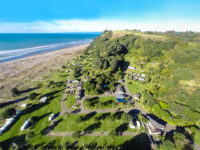What It’s Like Safety And Security Overview For Travelers To Honduras

Natural disasters:
On November 19th, 2020, Tropical Storm “Eta” and Hurricane “Iota” hit Honduras, back to back, causing the worst natural disaster in history. Mud and water submerged houses, killing many people and children and leaving the country in shambles.
Due to the global Covid-19 crisis, the Honduran government and international organizations have done so far, very little to assist the population that has lost their homes, personal belongings, and the ability to provide for their families.
The country is facing an unprecedented crisis and economists are expressing concerns about recovery, considering that between 1966 and 2020, dozens of natural disasters impacted the infrastructure, industries, agriculture, and livestock, causing the country and international organizations to invest 14 Billion dollars to rebuild. The US government, already facing a major crisis due to the pandemic, has decided not to intervene.
Crime overview:
Crime in Honduras is quite unpredictable and very few areas are considered safer than others. Notably, areas surrounding Suyapa Cathedral, downtown Comayagüela, downtown Tegucigalpa, and neighborhoods in the outer perimeter of the city are notoriously controlled by gangs.
Tourists and foreign travelers in the San Pedro Sula area were victims of armed robberies while traveling from the airport to hotels in tourist vans, minibusses, and rental cars. secure transportation Ghana Workers of NGO’s visiting some rural communities to render aid, as well as missionaries, have reported threats and assaults by local criminals.
Major cities like Tegucigalpa, San Pedro Sula and La Ceiba and smaller municipalities such as Atlántida, Colón, Cortés and Yoro have homicide rates higher than the national average.
The cooperation between Honduras and the United States, as seen homicide rates falling from 86.0 per 43.6 per 100,000 from 2012 to the end of 2019. Kidnappings also declined by 82% since 2013 (92 in 2013-12 in 2019). (Source OSAC)
Since 2010, there have been approximately 60 murders of U.S. citizens reported in Honduras in the San Pedro Sula and La Ceiba areas. Some of these deaths, occurred shortly after arrival and local Police investigated a local gang that was allegedly targeting travelers from arrival at the. In 2019, one murder of a US citizen was reported in Roatan.
Crimes such as armed robberies, burglaries, vandalism, home invasions, and extortions occur impact the locals, foreign travelers, tourists, government officials, and even gated communities with high-level security measures in place.
Roatán and the Bay Islands are the tourist hot spots in Honduras and are separated from the mainland. Although the risk level is lower than other Caribbean islands, crimes such as thefts, break-ins, assaults, rapes, and murders do occur mostly fueled by alcohol and drug abuse.
The infamous MS 13 (Mara Salvatrucha) and 18th Street gangs, can count on a small army of 7/10,000 “soldiers” over a population of 10 million people and are mainly involved in drug trafficking, murder-for-hire, carjacking, extortion, and street violence. Especially MS 13 is known for having gang members operating in both North and South America and associations with international organized crime controlling drug trafficking.
Religious/Ethnic Violence:
Ethnic and indigenous communities, mostly located in remote areas clashed in the past over land ownership and natural resource allocation. secure transportation Colombia The government was unable to intervene to restore order not to provide medical assistance, which nonexistent in the majority of these territories.
Other Travel Conditions:
Traveling on a cruise ship it’s usually a safe and pleasant experience if you follow a few basic rules such as utilizing only reputable tour companies approved by port agencies. Security has been improved and port agencies selected transportation companies to safely transfer travelers from the hotel to the port and vice versa, following reports of robberies and carjacking occurred to foreign tourists.
Cybersecurity Issues:
Extortion commonly takes place after cybercriminals acquire information about the victims through social media, the internet, or the victim’s family and entourage. Fake express kidnappings were also reported with a consistent MO. A cellphone was stolen and hacked; family members were called in the country of origin and the criminals asked for ransom for a victim that was never abducted. All scam lasts no longer than 3 hours and in some cases, the victim was able to advise family members that he/she was safe.

Credit card skimming is common especially in known restaurants, hotels, and retailers. There is often a spike in skimming in December and June when the working population receives Christmas and mid-year bonuses in the form of one extra month’s salary.learn more about Use Of GIS Mapping As A Public Health Tool
Country overview:
Honduras has been a republic since 1821. From 1963, after a military coup, the country was ruled by an authoritarian military government until the democratic election of President Cordova in 1981. Honduras maintained political stability until 2009 when another controversial “Coup” transferred the power from the President to the Head of Congress. The United States Congress, United Nations, and OAS first ruled the “Coup” a legal act then reversed the sentence and declared the government of Honduras not legitimate.
The Honduras Supreme Court battled for a year with the newly constituted Commission of Truth and Reconciliation and although the “Coup” was determined to be illegal, the republic of Honduras maintained its status as a democratic republic led by the Head of Congress.
The country is considered one of the poorest in Latin America; more than 70% of the population live below the poverty level and especially children are affected by chronic malnutrition. Natural disasters like Hurricane Mitch (1998), affected rural areas, increasing inequality and compelling the UN and the World Food Program to declare Hondura’s “food priority country”.
The economy is based on agriculture that suffers from environmental issues such as deforestation, the main cause for soil erosion, and land degradation. Lake Yojoa, Hondura’s largest source of fresh water as well as many rivers, is severely polluted by heavy metal, due to mining activities.
Public Transportation Conditions:
The public transportation sector is the most affected by gang violence, extortion, and homicides. Multiple acts of vandalism and arson against buses and taxis made the local news and numerous passengers had been the victims of violence, including robbery, kidnapping, and rape. It is highly recommended to avoid public transportation at all costs and to rely on security professionals by planning for secure ground transportation and close protection services while traveling in Honduras.
In 2019, gang violence on public transports claimed the life of 75 people between a taxi, bus drivers, and passengers. It is known that criminals travel on regular basis on buses committing criminal acts with impunity along the way.
Road conditions and Safety:
In 2019, there were 1,500 traffic fatalities throughout the country due to lack of infrastructure, poor road conditions, and the absence of basic road safety education, laws, and regulations. Unlicensed and undisciplined motorists, vehicles beyond their lifecycles, animals, and people wandering onto the road, absence of markings, proper lighting, and unpaved roads, are the root cause for the many fatalities occurring every year across the country.
Civil Unrest:
Civil unrest in Tegucigalpa and other parts of Honduras it’s nearly a daily occurrence. While most protests are peaceful, violence can erupt at a moment notice, mostly spurred by the outrage against government corruption, controversial education reforms, and allegations of involvement in drug trafficking and gang violence. It is crucial for travelers unfamiliar with the environment, to avoid protests and even small gatherings to minimize risks.
ETS Risk Management, has the ability to provide secure ground transportation and air support in Honduras for business and leisure travelers, together with executive protection services and the ability to assist its clientele for a simple transfer (airport/hotel and return), movements throughout the country, close protection armed or unarmed, armored and non-armored vehicles all including a security driver. Our low profile approach and discretion, enable client’s operation while facilitating itineraries. We are agile and have the ability to adapt to fast-paced environments and to provide service at a moment notice. Visit us at www.ets-riskmanagement.com





